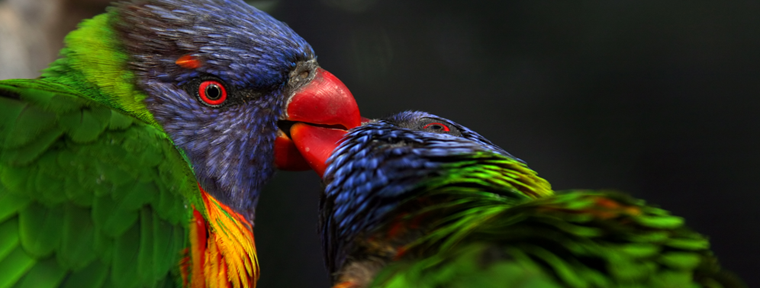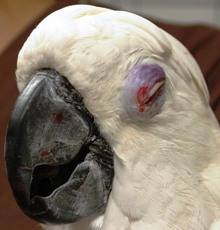Toys & Behavioral Enrichment for Pet Birds
Parrots and other birds are intelligent, curious and naturally active in the wild. The typical wild bird spends most of its day searching for food and being alert for predators. When it is not looking for food, it may be searching for a mate or helping take care of a nest, protecting its home from rivals, socializing with other birds, or preening its feathers, among other activities. As pets, birds no longer have to search for food, worry about predators, defend their home from rivals, or do many of the other things necessary to survive in the wild. Without these things to do, some parrots and other birds begin to engage in abnormal behaviors such as feather-plucking and chewing at their skin, pacing around their cages, back-flipping, eating their own stool, prolonged abnormal screaming, etc.





 Birds can injure themselves quite easily in the typical household. It is important to "bird proof" your home so that you lessen the chance of serious accidents.
Birds can injure themselves quite easily in the typical household. It is important to "bird proof" your home so that you lessen the chance of serious accidents.